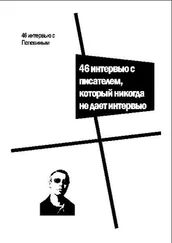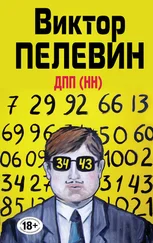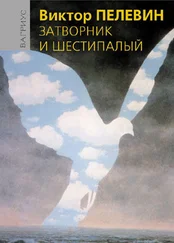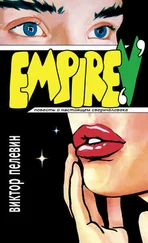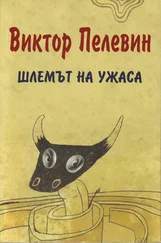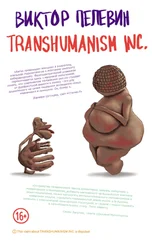Виктор Пелевин - Buddha's Little Finger
Здесь есть возможность читать онлайн «Виктор Пелевин - Buddha's Little Finger» весь текст электронной книги совершенно бесплатно (целиком полную версию без сокращений). В некоторых случаях можно слушать аудио, скачать через торрент в формате fb2 и присутствует краткое содержание. Жанр: Современная проза, на английском языке. Описание произведения, (предисловие) а так же отзывы посетителей доступны на портале библиотеки ЛибКат.
- Название:Buddha's Little Finger
- Автор:
- Жанр:
- Год:неизвестен
- ISBN:нет данных
- Рейтинг книги:5 / 5. Голосов: 1
-
Избранное:Добавить в избранное
- Отзывы:
-
Ваша оценка:
- 100
- 1
- 2
- 3
- 4
- 5
Buddha's Little Finger: краткое содержание, описание и аннотация
Предлагаем к чтению аннотацию, описание, краткое содержание или предисловие (зависит от того, что написал сам автор книги «Buddha's Little Finger»). Если вы не нашли необходимую информацию о книге — напишите в комментариях, мы постараемся отыскать её.
Buddha's Little Finger — читать онлайн бесплатно полную книгу (весь текст) целиком
Ниже представлен текст книги, разбитый по страницам. Система сохранения места последней прочитанной страницы, позволяет с удобством читать онлайн бесплатно книгу «Buddha's Little Finger», без необходимости каждый раз заново искать на чём Вы остановились. Поставьте закладку, и сможете в любой момент перейти на страницу, на которой закончили чтение.
Интервал:
Закладка:
‘Yes,’ said Serdyuk.
‘But if that were all there were to it, the work which you hold in your hands would not be anything particularly outstanding - the entire range of the s e arguments can be encountered at any atheist lecture in a village club. But there is one small detail which makes this icon a genuine work of genius, which sets it -and I am not afraid to say this - above Rublyov’s «Trinity». You, of course, understand what I mean, but please allow me to say it myself.’
Kawabata paused in solemn triumph.
‘What I have in mind, of course, are the empty stripes left from the stencil. It would have been no trouble to colour them in - but then the result would have been so different. Yes indeed, most certainly. A person begins by looking at this word, from the appearance of sense he moves on to the visible form and suddenly he notices the blank spaces that are not filled in with anything-and only there, in this nowhere, is it possible to encounter what all these huge, ugly letters strive in vain to convey, because the word «God» denominates that which cannot be denominated. This is a bit like Meister Eckhart, or… But that’s not important. There are many who have attempted to speak of this in words. Take Lao-tzu. You remember - about the wheel and the spokes? Or about the vessel whose value is determined solely by its inner emptiness? And what if i were to say that every word is such a vessel, and everything depends on how much emptiness it can contain? You wouldn’t disagree with that, surely?’
‘No,’ said Serdyuk.
Kawabata wiped away the drops of noble sweat from his forehead.
‘Now take another look at the print on the wall,’ he said.
‘Yes,’ said Serdyuk.
‘Do you see how it is constructed? The segment of reality in which the on and the giri are contained is located in the very centre, and all around it is a void, from which it appears and into which it disappears. In Japan we do not torment the Universe with unnecessary thoughts about its cause and origin. We do not burden God with the concept of «God». But nonetheless, the void in this print is the same void as you see in Burliuk’s icon. A truly significant coincidence, is it not?’
‘Of course,’ said Serdyuk, holding out his empty glass to Kawabata.
‘But you will not find this void in Western religious painting,’ Kawabata said as he poured. ‘Everything there is filled up with material objects - all kinds of curtains and folds and bowls of blood and God only knows what else. The unique vision of reality reflected in these two works of art is common to only you and us, and therefore I believe what Russia really needs is alchemical wedlock with the East.’
‘I swear to God,’ said Serdyuk, ‘only yesterday evening I was…’
‘Precisely with the East,’ interrupted Kawabata, ‘and not the West. You understand? In the depths of the Russian soul lies thesame gaping void we find deep in the soul of Japan. And from this very void the world comes into being, constantly, with every second. Cheers.’
Kawabata drank up, as Serdyuk had already done, and twirled the empty bottle in his fingers.
‘Yes,’ he said, ‘most certainly, the value of a vessel lies in its emptiness. But in the last few minutes the value of this particular vessel has increased excessively. That disrupts the balance between value and the absence of value, and that is intolerable. That’s what we must fear the most, a loss of balance.’
‘Yes,’ said Serdyuk. ‘Definitely. So there’s none left then?’
‘We could go and get some,’ Kawabata replied with a glance at his watch. ‘Of course, we’d miss the football…’
‘D’you follow the game?’
‘I’m a «Dynamo» fan,’ Kawabata answered, giving Serdyuk a very intimate kind of wink.
In an old, worn jacket with a hood and rubber boots Kawabata lost all resemblance to a Japanese, becoming instead the absolute picture of a visitor to Moscow from down south - the kind whose appearance alone was enough to prompt suspicions about the real reason for his visit.
But then Serdyuk had long known that most of the foreigners he encountered on the streets of Moscow were not really foreigners at all, but petty trader riff-raff who’d scrabbled together a bit of cash and then tarted themselves up at the Kalinka-Stockman shop. The genuine foreigners, who had multiplied to a quite incredible extent in recent years, had been trying to dress just (ike the average man on the street, for reasons of personal safety. Naturally enough, most of them got their idea of what the average Moscow inhabitant on the street looked like from CNN. And in ninety cases out of a hundred CNN, in its attempts to show Muscovites doggedly pursuing the phantom of democracy across the sun-baked desert of reform, showed close-ups of employees of the American embassy dressed up as Muscovites, because they looked a lot more natural than Muscovites dressed up as foreigners. And so despite Kawabata’s similarity to a visitor from Rostov - or rather, precisely because of that similarity - and especially because his face didn’t look particularly Japanese, it was really clear from the start that he was actually a pure-blooded Japanese who had just slipped out of his office for a minute into the Moscow twilight.
Furthermore, Kawabata led Serdyuk along one of those routes that only foreigners ever use - slipping across dark yards, in and out of buildings, through gaps in wire fences, so that after a few minutes Serdyuk was completely disoriented and had to rely entirely on his impetuous companion. Before very long they emerged on to a dark, crooked street where there were several trading kiosks and Serdyuk realized they’d reached their destination.
‘What shall we get?’ asked Serdyuk.
‘I think a litre of sake would do the job - said Kawabata. ‘And a bit of grub to go with it.’
‘Sake?’ said Serdyuk in astonishment. ‘Have they got sake here?’
‘This is the place all right,’ said Kawabata. ‘There are only three kiosks in Moscow where you can get decent sake. Why do you think we set up our office here?’
He’s joking, thought Serdyuk, and looked into the kiosk window. The selection was the usual one, except for a few unfamiliar litre bottles with labels crammed with hieroglyphics visible in among the others.
‘Black sake,’ Kawabata spoke gruffly. ‘Two. Yes.’
Serdyuk was given one bottle, which he stuck in his pocket. Kawabata kept hold of the other one.
‘Now just one other thing,’ said Kawabata. ‘It won’t take a moment.’
They walked along the line of kiosks and soon found themselves in front of a large tin-plated pavilion with a door pockmarked with holes, either from bullets or from nails or - as was more usual - from both. Both of the pavilion’s windows were protected with a traditional decorative grating, consisting of a metal rod bent into a semicircle in one bottom corner with rusty rays of iron radiating from it in all directions. The sign hanging above the door said ‘Jack of All Trades’.
Inside, there were tins of enamel paint and drying-oil on the shelves, with samples of tiles hanging from the walls and a separate counter piled high with various types of gleaming locks for safes. But in the corner, on an upturned plastic bath, there was something that Serdyuk had never seen before.
It was a black cuirass finished in gleaming lacquer, with small gold encrustations. Beside it lay a horned helmet with a fan of dangling neck-plates, also covered in black lacquer; on the helmet’s forehead there was a gleaming five-pointed silver star. On the wall beside the cuirass were several swords of various lengths and a long, asymmetrical bow.
While Serdyuk was inspecting this arsenal, Kawabata engaged the salesman in quiet conversation - they seemed to be talking about arrows. Then he asked him to take down a long sword in a scabbard decorated with white diamond shapes. He drew it half-way out of the scabbard and tried the blade with his thumbnail (Serdyuk noticed that Kawabata was very careful about the way he handled the sword and even when he was testing its cutting edge, he tried not to touch the blade with his fingers). Serdyuk felt as though Kawabata had completely forgotten that he existed, so he decided to remind him.
Читать дальшеИнтервал:
Закладка:
Похожие книги на «Buddha's Little Finger»
Представляем Вашему вниманию похожие книги на «Buddha's Little Finger» списком для выбора. Мы отобрали схожую по названию и смыслу литературу в надежде предоставить читателям больше вариантов отыскать новые, интересные, ещё непрочитанные произведения.
Обсуждение, отзывы о книге «Buddha's Little Finger» и просто собственные мнения читателей. Оставьте ваши комментарии, напишите, что Вы думаете о произведении, его смысле или главных героях. Укажите что конкретно понравилось, а что нет, и почему Вы так считаете.

